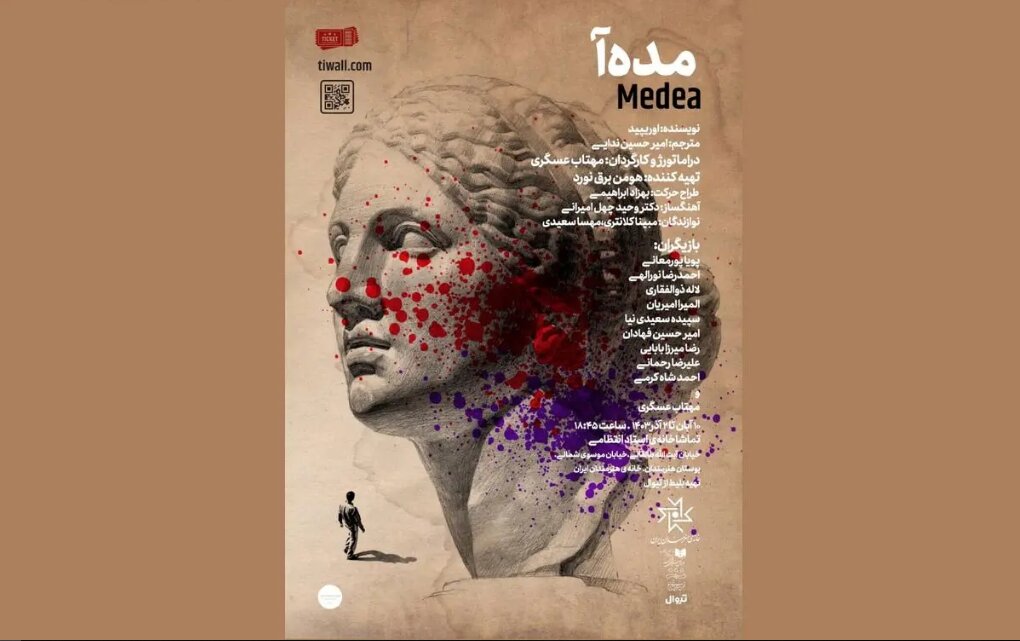Iranian Artists Forum to stage “Medea”

Tehran-The play “Medea,” a tragedy by the ancient Greek playwright Euripides, will be performed at the Entezami Hall of the Iranian Artists Forum from Thursday.
Directed by Mahtab Asgari, the play will be staged every night at 148:45 for three weeks through November 22, ILNA reported.
Asgari also performs in the play along with Pouya Pourmaani, Ahmadreza Nourollahi, Sepideh Saeidinia, Laleh Zolfaghari, Elmira Amirian, Amirhossein Fahadan, Alireza Rahmani, Reza Mirzababaei, and Ahmad Shahkarami.
“Medea” is a tragedy by the ancient Greek playwright Euripides based on a myth. It was first performed in 431 BC as part of a trilogy, the other plays of which have not survived. Its plot centers on the actions of Medea, a former princess of the kingdom of Colchis and the wife of Jason; she finds her position in the world threatened as Jason leaves her for a princess of Corinth and takes vengeance on him by murdering his new wife and her own two sons, in order to inflict the greatest possible suffering on Jason, before escaping to Athens to start a new life. In the end, her actions prove tragic for both herself and those around her, as she realizes too late the terrible price of her desires.
Euripides’ play has been explored and interpreted by playwrights across the centuries and the world in a variety of ways, offering political, psychoanalytical, and feminist, among many other original readings of Medea, Jason, and the core themes of the play.
The play has become a classic of the Western canon and the most frequently performed Greek tragedy in the 20th century. It experienced renewed interest in the feminist movement of the late 20th century, being interpreted as a nuanced and sympathetic portrayal of Medea’s struggle to take charge of her own life in a male-dominated world.
Despite being written over two millennia ago, “Medea” remains a timeless masterpiece that continues to resonate with contemporary audiences. Its themes of love, anger, and revenge are universal and transcend cultural boundaries, making it a work that continues to captivate audiences around the world.
The play also explores larger themes, such as the role of women in society and the costs of male ambition. Medea is a complex and fascinating character, often portrayed as both a ruthless villain and a tragic victim of circumstance.
Iranian directors have frequently referred to this play and its themes over the past few decades.
SS/